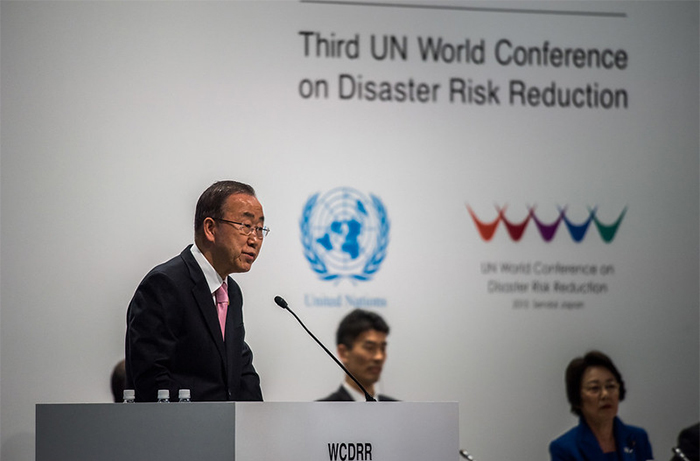After disasters around the world, particularly those caused by natural hazards, there is often a strong desire from built environment professionals in the UK and other high income countries to become involved and to offer their skills to the response.
This is an understandable and positive desire, but it should be acted upon with caution. It is important that those who respond to emergencies are suitably experienced and qualified. Not just technically, but also in areas of emergency management and international cooperation.
See guidance from the Institution of Structural Engineers.
There are many organisations, local, national, and international, which specialise in disaster response – and they are best placed to undertake such emergency responses. It is very important that in disaster response the principle of subsidiarity is adhered to.
The best responders are those who are closest to the disaster, and outside responders should only intervene when local capacity is overwhelmed, and even then, should work subsidiary to local capacities and leadership.
The UK Built Environment Advisory Group recognises that the capacity of its members and collaborators in disaster response is limited. Others are better placed to engage in disaster response after emergencies have happened; although if those specialist organisations request particular expertise through the UKBEAG, we will endeavour to provide it.
Disaster risk reduction
The strength of the UKBEAG’s members is in fact in an area that has been historically under-resourced and is strategically highly important: disaster risk reduction.
The 2015 Sendai Framework for Disaster Risk Reduction highlights the importance of increasing the resilience of people, services, and infrastructure, and substantially increasing international cooperation with developing countries. It is in these areas that the UKBEAG and its members have the skills and capacity to make a substantial difference, and by reducing vulnerability to disasters far more lives will be saved and improved than by responding after the disasters have already occurred.
This approach aligns also with UN Habitat’s strategy to seek a better quality of life for all in an urbanising world – particularly around Pillar 4 of the UN Habitat Theory of Change, which focusses on effective urban crisis prevention and response, with a specific outcome of enhanced resilience of the built environment and infrastructure.
The UKBEAG will therefore focus its efforts on reducing the risk of disasters, and avoiding disasters in the first place, rather than responding to them.
When disasters strike, we know that many members are keen to support international aid efforts.
In the first instance, we recommend that UK-based individuals support UN Crisis Relief, which supports the United Nations' critical work in humanitarian crises around the world and helps provide immediate rapid-response aid when disasters strike.

The Sendai Framework
The Sendai Framework for Disaster Risk Reduction 2015 to 2030 (Sendai Framework) was the first major agreement of the post-2015 development agenda and provides member states with concrete actions to protect development gains from the risk of disaster.
The Sendai Framework works hand in hand with the other 2030 Agenda agreements, including The Paris Agreement on Climate Change, The Addis Ababa Action Agenda on Financing for Development, the New Urban Agenda, and ultimately the Sustainable Development Goals.
It was endorsed by the UN General Assembly following the 2015 Third UN World Conference on Disaster Risk Reduction (WCDRR), and advocates for:
"The substantial reduction of disaster risk and losses in lives, livelihoods and health and in the economic, physical, social, cultural and environmental assets of persons, businesses, communities, and countries."
It recognises that the state has the primary role to reduce disaster risk but that responsibility should be shared with other stakeholders including local government, the private sector, and other stakeholders.
Find out more about the UK Built Environment Advisory Group and its initiatives.









